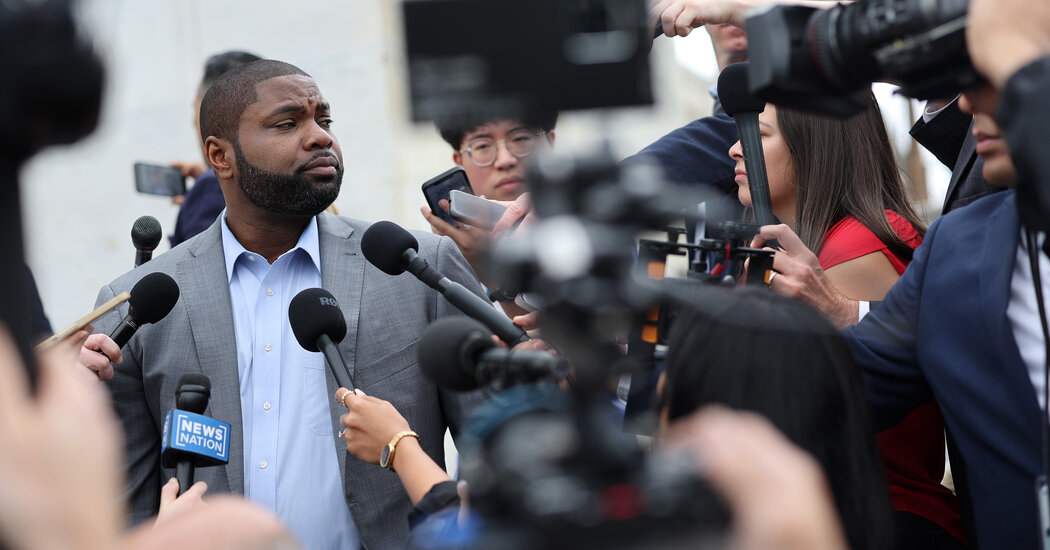Now, there have always been a few problems with this assessment, beginning with the underlying assumption that the relative economic success of white Americans is due primarily to stable family structure and not the result of broad and largely unrestricted access to education, economic opportunity and public goods as well as full political representation and the protection of the law.
But the single most important problem is that to the extent that we can speak of these things as singular entities, neither the Black family nor the Black community was all that strong or intact under either slavery or Jim Crow, nor were there — in Donalds’s formulation — more Black families.
American chattel slavery was practically defined by the fundamental instability of Black families. The institution rested on the expropriation of the reproductive capacities of the enslaved. Men and women were forced to have children who were then sold for profit. Families were torn apart as a matter of course. Natal alienation was the rule.
Here is an except from the abolitionist Josiah Henson’s “Truth Stranger Than Fiction: Father Henson’s Story of His Own Life,” published in 1858:
My brothers and sisters were bid off first, and one by one, while my mother, paralyzed by grief, held me by the hand. Her turn came, and she was bought by Isaac Riley of Montgomery county. Then I was offered to the assembled purchasers. My mother, half distracted by the thought of parting forever from all her children, pushed through the crowd, while the bidding for me was going on, to the spot where Riley was standing. She fell at his feet and clung to his knees, entreating him in tones that a mother only could command, to buy her baby as well as herself, and spare to her one, at least of her little ones.
Will it, can it, be believed that this man, thus appealed to, was capable not merely of turning a deaf ear to her supplication, but of disengaging himself from her with such violent blows and kicks as to reduce her to the necessity of creeping out of his reach and mingling the groan of bodily suffering with the sob of a breaking heart? As she crawled away from the brutal man I heard her sob out, “Oh, Lord Jesus, how long, how long shall I suffer this way!” I must have been then between five and six years old. I seem to see and hear my poor weeping mother now.
Enslaved people worked hard to preserve family ties and maintain kinship networks. They married, even as the law would not recognize their unions, and tried to keep their households intact as best they could. But they lived ultimately at the mercy of the master, who could and would destroy those families for profit and personal gain.
On the same note, you cannot discuss the Black family under Jim Crow in isolation from the poverty, exploitation and lawless, atavistic violence that marked the experience of Southern apartheid.
